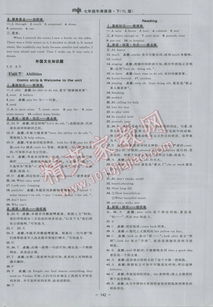Title: Understanding Total Quality Management (TQM) in Business
Total Quality Management (TQM) is a comprehensive approach to improving the quality and efficiency of operations within an organization. It involves continuous efforts to enhance customer satisfaction, streamline processes, and foster a culture of continuous improvement. Let's delve into the key principles and strategies of TQM and explore its significance in modern business practices.
1. Customer Focus:
At the heart of TQM lies a relentless focus on meeting and exceeding customer expectations. This involves understanding customer needs, preferences, and feedback, and aligning all processes and activities to deliver maximum value to customers.2. Continuous Improvement:
TQM emphasizes the concept of continuous improvement, also known as Kaizen in Japanese management philosophy. This involves constantly seeking ways to enhance products, services, and processes through incremental changes and innovations.3. Employee Involvement:
TQM recognizes the importance of empowering employees and involving them in decisionmaking processes. Engaged and motivated employees are more likely to contribute innovative ideas, take ownership of their work, and strive for excellence.4. Process Optimization:
TQM advocates for the optimization of processes to eliminate waste, reduce errors, and improve efficiency. This includes adopting tools and techniques such as Six Sigma, Lean Management, and Business Process Reengineering (BPR) to streamline workflows and enhance productivity.5. DataDriven Decision Making:
TQM relies on data and metrics to drive decisionmaking processes. By collecting and analyzing relevant data, organizations can identify areas for improvement, track performance against objectives, and make informed decisions to drive continuous enhancement.6. Leadership Commitment:
Successful implementation of TQM requires strong leadership commitment at all levels of the organization. Leaders play a crucial role in setting the vision, communicating the importance of quality, and providing the necessary resources and support to foster a culture of excellence.7. Supplier Relationships:
TQM extends beyond the boundaries of the organization to include suppliers and other external stakeholders. Building strong relationships with suppliers and collaborating closely with them can enhance quality throughout the supply chain and ensure consistent delivery of highquality inputs.8. Quality Assurance:
TQM emphasizes the importance of quality assurance mechanisms to prevent defects and errors before they occur. This includes implementing robust quality control processes, conducting regular audits and inspections, and adhering to industry standards and best practices.9. Training and Development:
Continuous learning and development are essential components of TQM. Organizations invest in training programs to equip employees with the necessary skills and knowledge to perform their roles effectively and contribute to quality improvement initiatives.10. Customer Feedback and Satisfaction:
TQM places significant emphasis on gathering customer feedback and measuring satisfaction levels. By soliciting customer input, organizations can identify areas for improvement, address issues promptly, and enhance overall customer experience.
In conclusion, Total Quality Management (TQM) is a holistic approach to quality management that emphasizes customer focus, continuous improvement, employee involvement, and process optimization. By embracing TQM principles and strategies, organizations can enhance quality, drive efficiency, and gain a competitive edge in today's dynamic business environment.
免责声明:本网站部分内容由用户自行上传,若侵犯了您的权益,请联系我们处理,谢谢!联系QQ:2760375052











